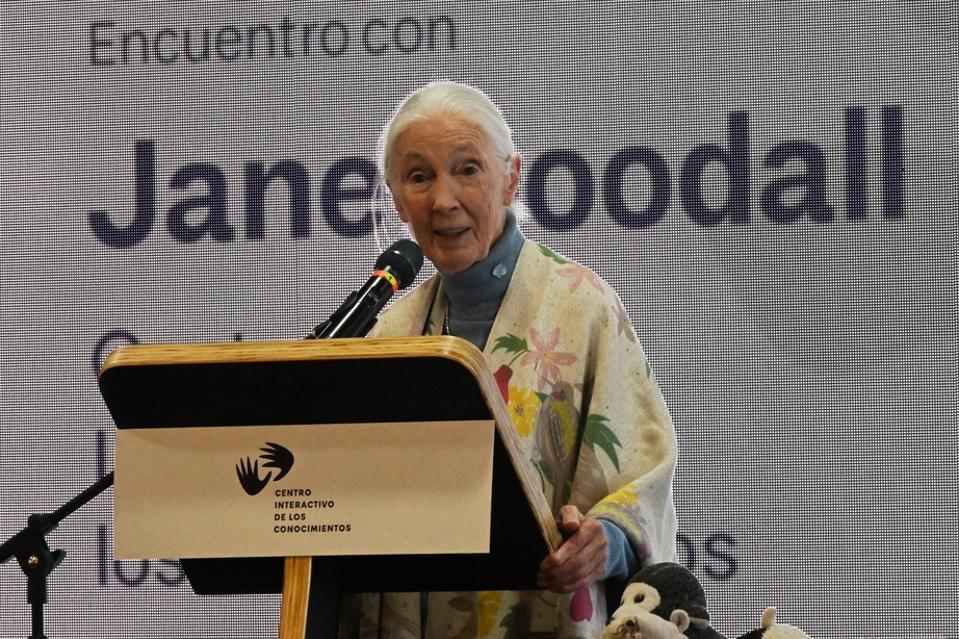A Lasting Voice in a Final Conversation
In September 2025, Jane Goodall — her voice carrying both urgency and calm authority — warned: “We have a window of time. But it’s not a very big window, and if we don’t change the way we do things … then it will be too late.”
Goodall, the world-renowned conservationist and global advocate for environmental sustainability, spent her life spreading a simple message: humans are part of nature, not separate from it, and our survival depends on protecting the natural world. We have a small and closing window to change the way we live, consume, and grow, or face irreversible harm to the planet and ourselves.
This message is about conservation. It is also about leadership. She was calling on all of us — and especially those in positions of power — to act with responsibility and a sense of legacy. Her life’s work offers timeless guidance for anyone navigating complexity, disruption, and mounting global challenges.
1. Lead With Curiosity, Not Assumptions
When Jane Goodall arrived in Gombe, Tanzania, in 1960, she defied every convention in science. Instead of treating chimpanzees as anonymous research subjects, she gave them names, watched with patience, and let the evidence reveal itself. Her groundbreaking work showed that chimpanzees have emotions, intelligence, and even use tools — discoveries that reshaped our understanding of the natural world.
Key Takeaway: Breakthroughs rarely come from rigid frameworks. Research from Harvard Business School shows that curiosity improves decision-making, fosters creativity, and enhances collaboration. Organizations that encourage curiosity are better at adapting to uncertainty and uncovering new opportunities, while those that suppress it often miss critical signals of change.
2. Courage Over Conformity
Goodall’s methods were criticized early in her career, and her shift from research to activism was often met with resistance. Yet she stood firm in her convictions. In her final interviews, she urged leaders to “have courage,” reminding us that lasting change requires difficult choices, even when they go against the mainstream.
Key Takeaway: True leadership often requires defying short-term pressures to uphold long-term principles. Having courage means going beyond easy commitments to embrace bold, sometimes unpopular actions. At New York City’s Climate Week, a handful of companies showed how rejecting synthetic pesticides and herbicides has helped scale regenerative organic practices to 20 million acres nationwide — with the promise of more to come.
3. Think in Systems, Not Silos
Jane Goodall often reminded us that “we are part of the natural world, not separate from it; we depend on it for clean air, water, food—everything.” In her advocacy, she warned that disturbing one part of a system inevitably destabilizes the whole. Goodall’s insistence on interconnection serves as a call for leaders to adopt systems tools that help them understand today’s complex challenges.
Key Takeaway:. Today’s leadership requires systemic vision. A Forbes article argues that ‘today’s most crucial leadership skill is systems thinking’ — urging leaders to move beyond silos, test strategies in simulation, and respond to complexity with agility and insight. To operationalize that vision, tools like the En-ROADS Simulator (co-developed by Climate Interactive and MIT Sloan) let decision-makers visualize trade-offs and unintended consequences across domains — from supply chains to climate systems.
4. Build Trust Through Empathy
Perhaps Goodall’s most famous accomplishment wasn’t her discovery of chimps using tools. It was her ability to build trust with them, patiently earning their acceptance until they revealed their world to her. Reflecting on her work, Goodall often said that “only if we understand, can we care. Only if we care, will we help.” Her empathy — seeing the individuality in each chimpanzee — was the foundation of her groundbreaking discoveries.
Key Takeaway: Empathy is sometimes viewed as a weakness. Research shows otherwise. Studies highlight a significant link between empathetic leadership and innovation: 61% of employees with highly empathetic senior leaders report being innovative at work, compared with only 13% of those with less empathetic leaders. A 2025 Harvard Business Review study also found that a lack of empathy can lead to low morale and poor retention. Just as Goodall’s empathy built trust with the chimpanzees, leaders today build stronger organizations when they listen deeply, respect individuality, and create psychological safety.
5. Anchor Leadership in Purpose
What began as research in the forests of Gombe grew into a global mission: founding the Jane Goodall Institute, launching Roots & Shoots to empower young people in over 60 countries, and advocating tirelessly for the planet. As she reminded audiences: “You cannot get through a single day without having an impact on the world around you. What you do makes a difference, and you have to decide what kind of difference you want to make.”
Key Takeaway: Purpose is more than branding — it can be the organization’s North Star. Just as Goodall’s mission expanded her influence from science to global advocacy, organizations that ground themselves in a higher purpose attract talent, inspire engagement, and deliver sustained value. When challenges arise, it is purpose that ensures resilience and keeps people aligned on what truly matters.
Perseverance Against All Odds
Jane Goodall never underestimated the scale of the challenges she faced. During the decades of her advocacy, the global chimpanzee population was cut in half — a painful reminder of how slow progress can be, even in the face of relentless effort. And yet, she never lost faith. Goodall chose perseverance over despair, returning again and again to her central message: every individual action matters, and collective change is possible. Her resilience in the face of setbacks is perhaps her most enduring lesson.
The final message: Leadership — whether in conservation, business, or society — is not about easy wins. It is about holding on to purpose, even when the odds seem overwhelming. As Goodall’s life shows, the point is not to guarantee immediate success, but to ensure that we never stop trying. Giving up guarantees’ failure; persistence keeps the possibility of change alive.

